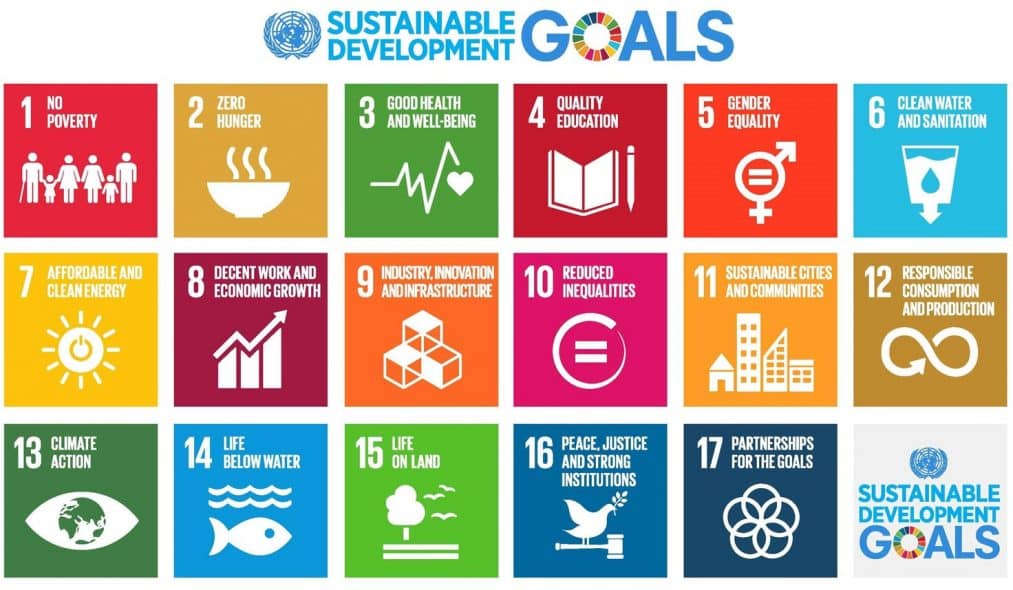Contact us today for your Free Quote
In the first post in our ‘Decade for Change’ blog series, we take an introductory look at the UN’s Sustainable Development Goals
A Decade for Change – The 2030 Agenda
The UN Secretary-General called for a ‘decade of action’ to start in 2020, urging governments and UN member states to double-down on efforts the meet the United Nation’s Sustainable Development Goals. Coming at the beginning of a decade that has already seen extreme weather events and worldwide climate activism, this call reflects a growing global urgency: we must learn to live more sustainably, and we must do so soon.
Ambitious – and Necessary – Targets
Developed and adopted by the UN in 2015, the seventeen goals set out in the 2030 Agenda were designed to “provide a shared blueprint for peace and prosperity for people and the planet”, culminating in ambitious targets to end poverty and hunger, protect the planet, and achieve peace by 2030.
These goals were designed by the UN to stimulate growth and development in five critical areas of importance to humanity:
People – To end poverty and hunger, and ensure that human beings can fulfil their potential with dignity and equality;
Planet – To protect the planet from degradation, targeting consumption and production, managing its natural resources and taking urgent action on climate change;
Prosperity – To ensure that all human beings can enjoy prosperous and fulfilling lives and that economic, social and technological progress occurs in harmony with nature.
Peace – To foster peaceful, just and inclusive societies which are free from fear and violence.
Partnership – To mobilize these goals through global partnership, focused on the needs of the poorest and most vulnerable first.
These five Ps form the pillars that uphold the scheme’s objectives, which range from the economic to the environmental and everything in-between. Through these seventeen goals – pictured below – which are monitored across 231 measureable indicators, the UN hopes to provide an avenue to improve all of the world’s major issues and inequalities.

Now the world is five years into the project, and while progress is being made, the science says that it’s not being made fast enough. That makes this decade one for action and acceleration, for raising awareness and for doing what we can – and if you’re reading this, then you can get involved too.
Global Goals, Local Efforts
While the UN Sustainable Development Goals are aimed mostly at governments and state-wide changes, the goals themselves offer a strong set of guidelines for sustainable living. Whether you’re an individual, you’re running a small business, or you’re part of a large organisation, there will be things that you can do, on however small or large a scale, to help to usher in the decade of action that the planet needs.
Here at Bywaters we’ve modelled our own Corporate Social Responsibility approach after the Development Goals, aligning each of our charity events, social initiatives, or green outreach programmes with one of the UN’s key objectives. This way we can be sure that everything we’re doing is working towards these 2030 ambitions – and that includes raising awareness and spreading the word about the fight for a sustainable future.
Reaching 2030, One Post at a Time
Now that we’ve run through the basics, it’s on to business. Working in the waste industry, we see first-hand the effects of unsustainable life – but we also see so much incredible and positive work that people are doing to make things better (as well as getting involved where we can!).
That’s why in this blog series we’ll be taking you through the Sustainable Development Goals, exploring the kinds of things that we can do – as businesses, communities, and people – to work towards a 2030 that treats its people and its planet with care and compassion.


